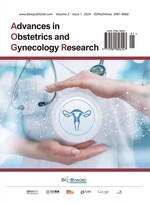Abstract
Objective: To introduce hormone replacement therapy for patients with perimenopausal syndrome and observe its clinical application effect. Methods: Patients with perimenopausal syndrome were the subjects of this study, with a total of 110 participants clinically admitted from January 2022 to December 2023. Upon enrollment, patients were divided into groups based on differences in treatment modes. The observation group (n = 55) received routine health care combined with hormone replacement therapy, while the control group (n = 55) received only routine health care treatment. Evaluation criteria included psychological state, symptom scores, improvement in hormone levels, and the incidence of adverse reactions. The clinical effects of different treatment options were compared. Results: Post-treatment, scores of the Self-Rating Anxiety Scale (SAS) and the Self-Rating Depression Scale (SDS) in the observation group were significantly lower than those in the control group (P < 0.05). Additionally, the female menopausal syndrome self-diagnosis assessment scale (Kupperman) score was 12.31 ± 1.25 points in the observation group compared to 15.22 ± 1.84 points in the control group (t = 9.7018, P < 0.05). Furthermore, levels of follicle-stimulating hormone (FSH) and luteinizing hormone (LH) were lower in the observation group than in the control group, while estradiol (E2) and progesterone levels were higher in the observation group than in the control group (P < 0.05). There was no statistically significant difference in the total incidence of adverse reactions between the observation and control groups (P > 0.05). Conclusion: The application of hormone replacement therapy in Chinese medicine can improve patients’ mental state, alleviate clinical symptoms, and restore hormone levels. This treatment modality is deemed safe with minimal adverse reactions, thus offering positive value.
References
Gao C, Wang L, Li L, 2023, Effects of Different Doses of Estrogen Combined with Progesterone in the Treatment of Patients with Perimenopausal Syndrome. Shenzhen Journal of Integrated Traditional Chinese and Western Medicine, 33(3): 89–91.
Xu H, Du X, 2023, Observation on the Clinical Effect of Hormone Replacement Therapy in the Treatment of Perimenopausal Syndrome. Electronic Journal of Practical Gynecological Endocrinology, 10(2): 68–70.
Guo X, 2023, Effects of Hormone Supplementation Therapy on Hormone Levels and Symptoms of Anxiety and Depression in Patients with Perimenopausal Syndrome. Clinical Medicine, 43(3): 102–104.
Lu L, 2023, Analysis of the Clinical Efficacy and Safety of Low-Dose and Ultra-Low-Dose Hormone Therapy for Perimenopausal Syndrome. Electronic Journal of Practical Gynecological Endocrinology, 10(15): 93–95.
Li C, Zhao J, Jin Y, et al., 2022, The Effect of Medroxyprogesterone Acetate and Estradiol Valerate in Treating Perimenopausal Syndrome and Its Impact on Estrogen Levels and Endometrium. Clinical Misdiagnosis and Mistreatment, 35(5): 16–19.
Zhang H, Shen Z, Qin X, et al., 2020, Study on the Effects of Low-Dose Conjugated Estrogens and Standard-Dose CEE Combined with Natural Progesterone or Dydrogesterone on Bone Density in Patients with Perimenopausal Syndrome. Chinese Journal of Osteoporosis, 26(2): 198–201.
Lu X, Zou F, Peng H, et al., 2022, Effect of Estrogen and Progesterone Replacement Therapy Combined with Alprazolam Tablets in the Treatment of Perimenopausal Syndrome Accompanied by Anxiety Disorder. Chinese Medical Innovation, 19(36): 134–138.
Ma L, Ji Y, Bai R, et al., 2023, Effects of Different Doses of Estrogen Combined with Dydrogesterone in the Treatment of Perimenopausal Syndrome and Its Impact on Bone Density in Patients. Chinese Journal of Practical Medicine, 50(20): 100–103.
Xu R, Chen H, Chen L, 2021, Effects of Hormone Supplementation Therapy on Sex Hormone Levels, Endometrial Thickness, and Bone Density in Patients with Perimenopausal Syndrome. Journal of Clinical and Experimental Medicine, 20(1): 63–66.
Lu Y, 2021, Clinical Efficacy of Routine Health Care Combined with Sex Hormone Replacement Therapy in the Treatment of Perimenopausal Syndrome and Its Impact on Serum Hormones. Journal of Rational Clinical Drug Use, 14(9): 131–133.
